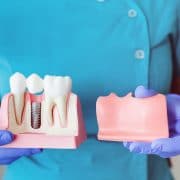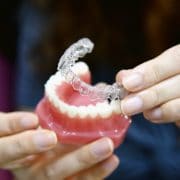3 Signs You Have a Cavity and What to Do
Cavities have earned a bad reputation in the past, especially with their portrayal in the media. Sometimes, even with proper brushing and flossing, a cavity can form.
Cavities aren’t just formed when eating sugar and forgetting to brush your teeth, although a healthy diet and the maintenance of a proper routine can drastically improve your health and deter cavities.
The expert team at Allen Dental in West Salem, WI, is proud to serve the local community with quality dental care services, including preventing and filling cavities. This allows you to fully use your teeth and gums and enjoy your daily activities without worrying about sensitivity or pain.
What is a Cavity?
A cavity is a hole in the tooth enamel caused by bacterial decay. When bacteria feed on sugars and starches in your mouth, they produce acids that can erode the enamel.
Over time, this erosion can create a cavity.
Here are some signs you may have a cavity:
- Toothache: A toothache is a common symptom of a cavity. The pain may be sharp, throbbing, or dull.
- Sensitivity to Hot and Cold: It could be a sign of a cavity if your teeth are sensitive to hot or cold temperatures.
- Visible Pit or Hole: You may be able to see a small pit or hole in your tooth, especially if the cavity is on the front or side of your tooth.
Your Partners in Great Dental Care
If you can’t remember the last time you had a professional cleaning, you may be due for one. We are well-equipped to take care of any cavity, but we’d also rather prevent them from occurring in the first place.
We look forward to helping you achieve your smile goals in a warm and welcoming environment. Reach out to us today if you have any questions or concerns. We’d love to hear how to make your next visit more comfortable.
During your next appointment with the gifted team at Allen Dental in West Salem, WI, you can be sure you are receiving the utmost care and quality that you and your family deserve.











